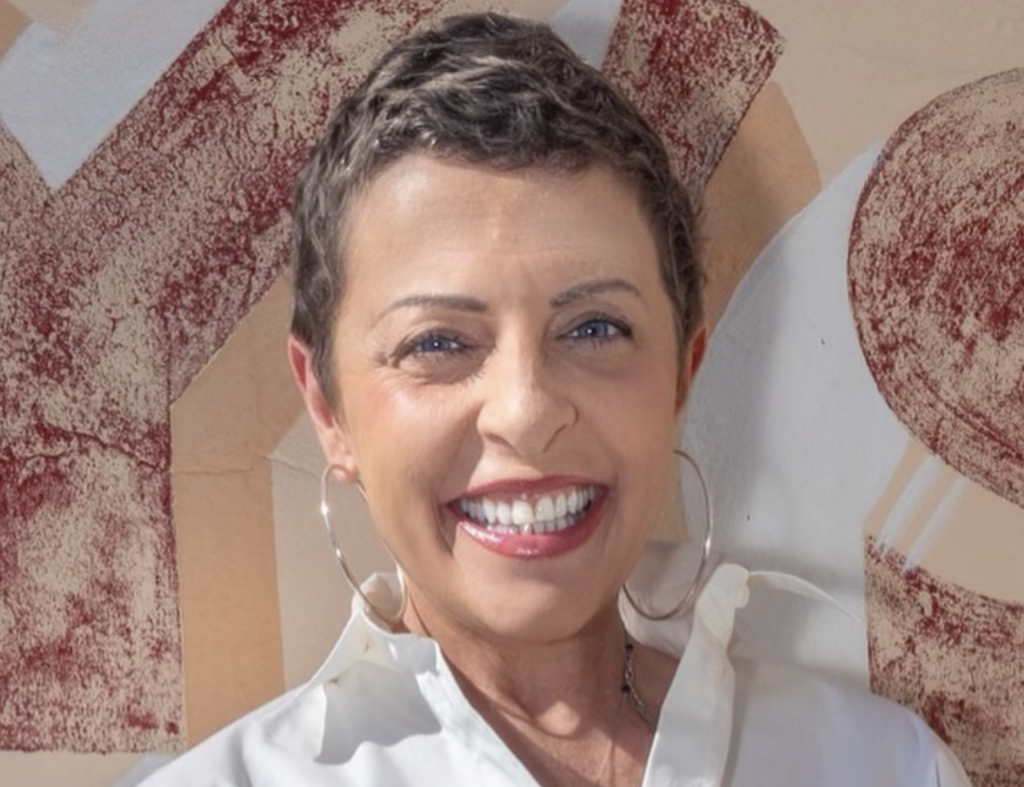The Voice Virginia Lillye on ovarian cancer and supporting her husband

Read more
Lillye’s more popular songs, including “Call Me” and “Tightrope,” were heard regularly on the radio in 2020.
According to Daily Mail Australia, Lillye has performed with well-known rock stars including KISS member Gene Simmons, Richie Kotzen of Poison and Gilby Clarke of Guns ‘N’ Roses. However, her fans have revealed that she did not perform last summer due to a bout of ovarian cancer.
“Exactly one year ago today, I received the devastating news that I have stage 3 ovarian cancer. Our world was thrown upside down as we struggled through the hardest and most difficult time,” Lillye wrote.

The popular singer says she learned “many lessons” during her cancer battle, including breaking “old thought patterns” and breaking bad habits.
Lillye says she will need to undergo two more cycles of chemotherapy before her planned treatment is complete.
“By this time next year, I want to live a completely normal life. One without needles, without medications and without toxic substances entering my body,” Lillye said.
Helping patients understand treatment options for ovarian cancer
Supporting a spouse with cancer
A life-changing diagnosis can impact the patient and their families emotionally and physically.
A study published in the Journal of the Royal Society of Medicine examined the impact of a cancer diagnosis or cancer experience on family members. It concluded: “Most chronic illnesses have similar effects on family members, including psychological and emotional functioning, disruption of leisure activities, impact on interpersonal relationships and financial resources.”
Feelings such as “helplessness, loss of control, guilt, anger, embarrassment” are some of the most common emotions that parents, siblings and other relatives in the household of a person battling an illness may experience, according to researchers.
Licensed clinical psychologist Dr. Marianna Strongin also believes that communicating one’s feelings is crucial for couples coping with a cancer diagnosis.
She adds that throughout treatment, cancer patients “should surround themselves with people who care and support them,” but at the same time be aware of their limitations.
Virginia’s ongoing cancer illness
Lillye is a singer who has performed alongside legendary artists such as KISS, Guns ‘N’ Roses, and more. Last summer, eagle-eyed fans noticed that she wasn’t sharing photos and videos of her performances as frequently as she once did. Her inactivity was due to a diagnosis of stage 3 ovarian cancer.
“You may have noticed that there are no posts about performances and shows,” Lillye said on Instagram.
Ovarian cancer is also called the “whispering cancer” because women often do not experience symptoms until the cancer has already reached an advanced stage. The symptoms that appear first are difficult to identify as cancer.
“Ovarian cancer has no specific symptoms,” Dr. Beth Karlan, a gynecologic oncologist at UCLA Medical Center, told SurvivorNet.
According to the experts at SurvivorNet, the following symptoms may indicate ovarian cancer.
- A feeling of bloating or fullness
- Pain in the pelvis or abdomen
- Nausea
- Vomit
- Changes in bowel habits
SEE: Ovarian cancer treatment.
“I have a long road to recovery ahead of me, I have already completed the first round of chemotherapy and I am on my way to the second round,” Lillye said in July 2023.
Her treatment included several rounds of chemotherapy and a complete hysterectomy.
A hysterectomy is a procedure in which part or all of the uterus is removed, often along with the cervix, according to the National Cancer Institute. In women diagnosed with uterine, ovarian or cervical cancer, the cancer can be treated with a hysterectomy.
During the treatment, Lillye lost her hair. However, she remained in good spirits, encouraged by her husband’s willingness to shave his head as well.
“The hair fell out and my husband, being the wonderful man he is, helped me shave off my locks as well,” Lillye said.
After a difficult surgery and further rounds of chemotherapy, Lillye said she felt mentally stronger.
The standard treatment for patients with ovarian cancer is chemotherapy, which helps many patients achieve remission.
According to a study published in the medical journal Gland Surgery, ovarian cancer “relapses in nearly 25 percent of early-stage cases and more than 80 percent of advanced-stage cases.” Because the disease is very likely to relapse, especially in the later stages of ovarian cancer, certain drug treatments offer hope to many women.
Maintenance therapy is continued treatment after the patient has completed their initial treatment. After a patient with ovarian cancer has completed a series of treatments – such as surgery and chemotherapy – her doctor may recommend a form of maintenance therapy to delay a possible recurrence. Maintenance therapy may involve taking an oral pill called a PARP inhibitor every day after chemotherapy and may keep the cancer in remission for longer.
Genetic testing helps doctors determine the best maintenance therapy.
WATCH: How your ovarian cancer responds to certain types of chemotherapy will determine your future treatment.
In early 2024, Lillye received her last chemotherapy treatment – or so she thought. A few months later, in March 2024, repeated CT scans showed something troubling.
“My recent CT scan showed evidence of fluid in my left lung with thickening of the lining. What would normally be considered a non-issue is the fact that my blood CA125 level has increased from 13 to 74, which is concerning to my team,” Lillye explained.
In the end, the nursing team told her that she had to start chemotherapy again.
“Back in the saddle for my targeted therapy,” said Lillye.
Even after two more cycles of chemotherapy, Lillye remains hopeful; the tests no longer show any signs of cancer.
Questions to ask your doctor
If you are undergoing cancer treatment and are experiencing hair loss, you should ask your doctor the following questions:
- Are there any treatments that can help me control or minimize my hair loss?
- What are scalp cooling devices and how do they work?
- Do you recommend scalp cooling devices?
- What other options are there to cope with hair loss?
- Can you recommend a wig maker?
- My hair loss is causing me psychological problems. Can you recommend a therapist I can talk to about it?
- How do I find a support group near me where there are people who have similar experiences?
Learn more about SurvivorNet’s rigorous medical review process.



